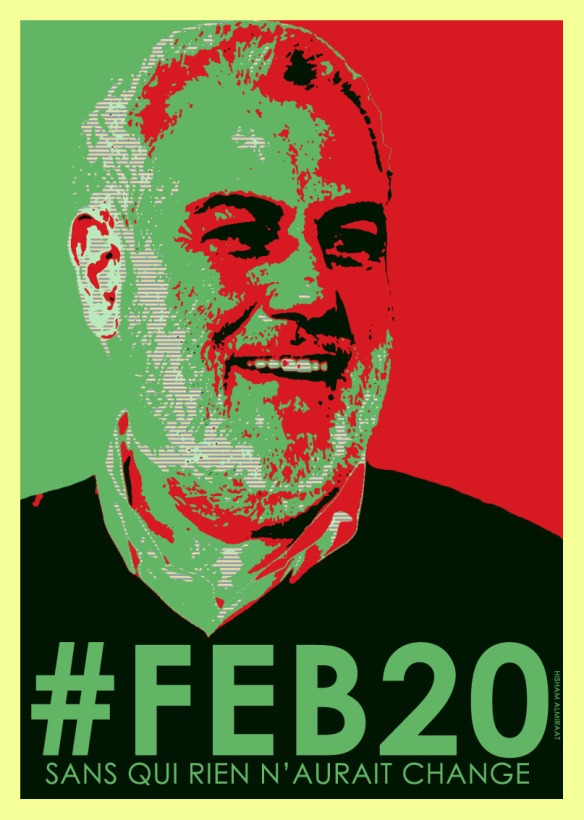L’idée du poster ci-dessous m’est venue suite à une discussion avec un ami où il était question du mouvement du 20 février. La question était de savoir si ce dernier avait joué un role dans l’évolution que connaît le Maroc actuellement. Dans mon esprit la réponse est claire : sans le mouvement du 20 février, il est très probable qu’aucune des réformes n’aurait été initiées. Mais le poster mérite une courte explication. Je n’ai pas envie de m’étaler en prose, alors je dirais que ce n’est pas une tentative de minimiser la victoire du PJD, qui est par ailleurs méritée. Cette victoire soulève cependant autant de questions qu’elle ne suscite d’espoir. Je suis sceptique à l’idée que le Makhzen se soit définitivement retiré des affaires mais j’espère me tromper. Que ceux qui gouverneront ce pays tiennent tête aux injonctions autoritaristes du régime. Mais surtout que ceux qui prétendent être démocrates reconnaissent au mouvement du 20 février son droit à manifester et son rôle dans cette évolution–aussi incomplète et frustrante soit elle–au lieu de lui jeter des pierres.



